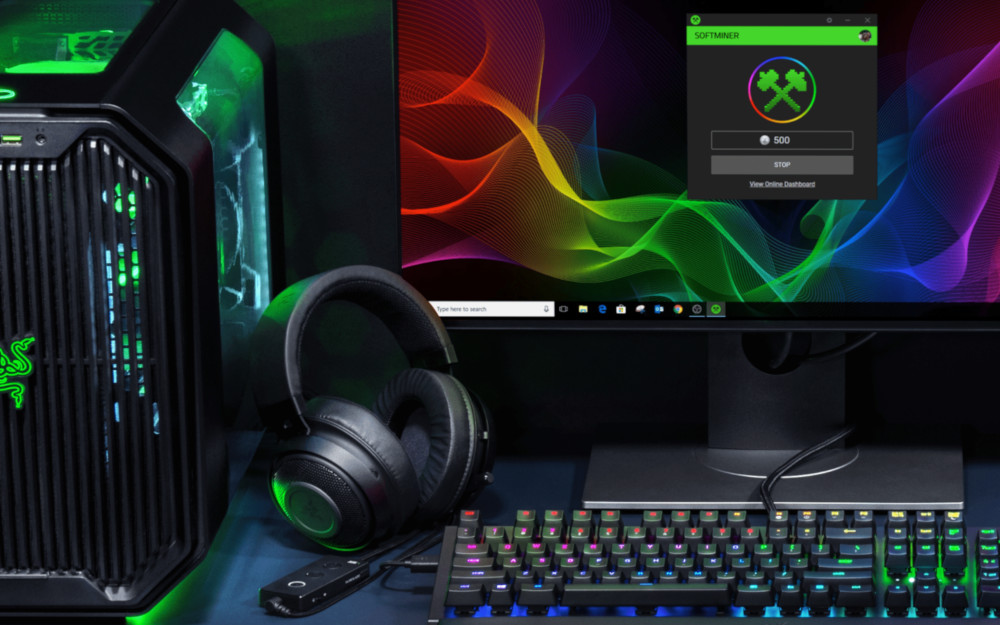Razer's Mining Rewards Program Has Some Gamers Suspicious
Razer has partnered with Gamma to offer Razer Silver, its rewards program dressed up as a proprietary currency, in exchange for being allowed to mine cryptocurrency on people's systems when their GPU would otherwise be idle. And it turns out people aren't keen on the deal.
It's not hard to guess why: ZDNet pointed out that Razer's estimate of bringing in 500 Razer Silver every 24 hours means it would take 196 days to earn enough to buy a game. Purchasing the company's hardware would take even longer, with the Razer Huntsman Elite coming in at 456 days. That's assuming someone gets that 500 RS per day--Razer said the program is limited to 5,000 people a week and earnings fall as more join in.
Razer and Gamma would almost certainly mine far more cryptocurrency in those times. The companies aren't just asking people to make them real money in exchange for rewards points; they're doing so with a laughable exchange rate. And that's before you even factor in the increased energy costs associated with mining. By the time someone earns enough Razer Silver to buy something they could actually be losing money.
Those factors alone make the program dubious at best. There's also the fact that many people are wary of automated mining software. There's no guarantee it will only work as intended, and when malfunctions it could significantly hinder performance. It can be hard to justify the risks, especially when it would take longer than a year to earn enough fake money to buy a $200 keyboard, assuming payouts and exchange rates are stable.
Razer has struggled to establish a rewards program that sticks. The company introduced the zVault in 2017 with two currencies, zGold and zSilver, to reward people for using its software. (zSilver was exchanged for zGold which in turn allowed people to purchase Razer hardware.) Then it gave away zSilver for playing games via the Paid to Play program, but it nixed the setup because of "an increasing amount of negative feedback."
Next came the Razer Game Store, which allowed people to more easily spend their zGold on games, rather than requiring them to purchase them from select few publishers. Then everything was rebranded as Razer Silver and Razer Gold; the zVault and its zCurrencies were replaced. Given the amount of "negative feedback" the company's getting on the Gamma partnership so far, we wouldn't be surprised if it's gone soon as well.
Get Tom's Hardware's best news and in-depth reviews, straight to your inbox.

Nathaniel Mott is a freelance news and features writer for Tom's Hardware US, covering breaking news, security, and the silliest aspects of the tech industry.
